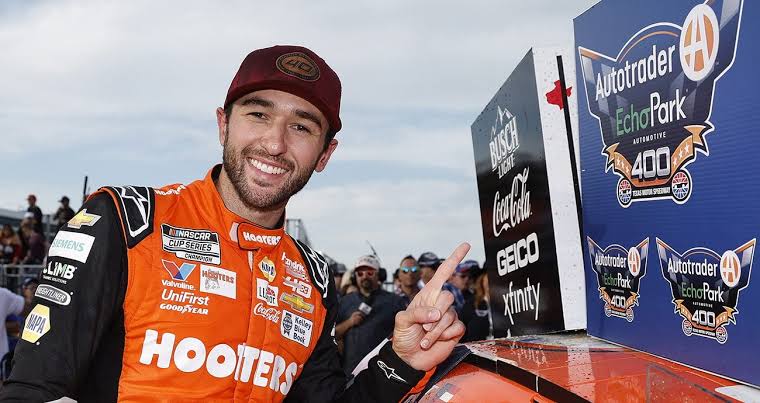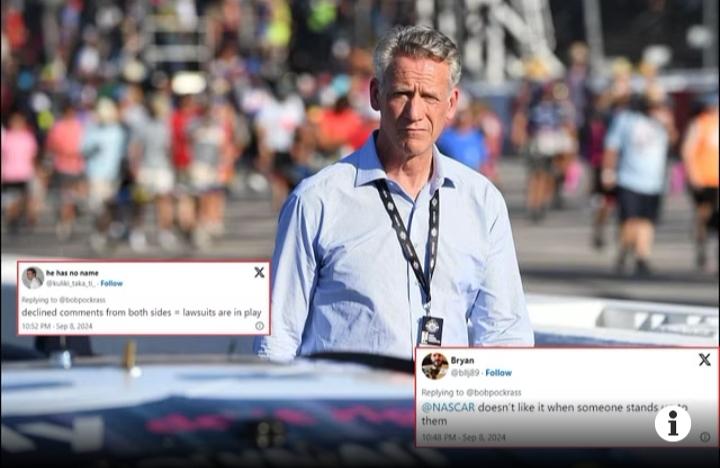Richard Childress Racing (RCR) and Austin Dillon recently faced a significant setback when their appeal against a NASCAR penalty was denied. Dillon, who pilots the No. 3 RCR Chevrolet, was penalized following a contentious victory at Richmond Raceway on August 11. The penalty, which has drawn widespread attention within the racing community, has had profound implications for Dillon and his team.
The controversy arose during the final moments of the 400-lap race. Dillon, in a bid to secure his first win of the season and the fifth of his NASCAR Cup Series career, made aggressive moves that resulted in the wrecking of fellow competitors Joey Logano and Denny Hamlin. While such a victory would typically ensure a driver’s eligibility for the playoffs, NASCAR’s decision to penalize Dillon has left him on the outside looking in. Although the victory itself was allowed to stand, Dillon was docked 25 points in both the owner’s and driver’s championship standings, effectively nullifying his playoff berth. NASCAR justified the penalty by citing Dillon’s violation of the playoff eligibility rule, which rendered him ineligible to enjoy the “benefits of the win.”
RCR quickly moved to challenge this ruling, filing an appeal with the National Motorsports Appeals Panel. However, their efforts proved futile, as the panel upheld NASCAR’s decision. Renowned motorsports journalist Bob Pockrass reported on the panel’s ruling, emphasizing that NASCAR, as a premier motorsports organization, expects its drivers to exhibit exemplary conduct to maintain the integrity of its championships. The panel’s statement read, “In this case, the ‘line’ was crossed,” signaling that Dillon’s actions during the race had gone beyond acceptable limits.
While Dillon’s playoff hopes were dashed, there was a small consolation for the team. NASCAR decided to reduce the three-race suspension initially imposed on Dillon’s spotter, Brandon Benesch, who was accused of instructing Dillon to “wreck him” during the heat of the race. This suspension was reduced to just one race, which Benesch has already served by sitting out the Michigan International Speedway event. This decision, however, did little to alleviate the overall frustration felt by RCR and its driver.
Despite the setback, Richard Childress Racing has not given up the fight. The team has decided to take their appeal to the next level, planning to present their case to the Final Appeal Officer, Bill Mullis, who also owns Langley Speedway in Hampton, Virginia. In an official statement, RCR expressed their disappointment with the outcome of the initial appeal, stating that they respected the NASCAR appeals process but did not believe that the facts presented were accurately reflected in the panel’s decision. The statement further indicated the team’s intention to seek a more favorable outcome in front of the Final Appeal Officer.
As the NASCAR season progresses, Dillon’s situation becomes increasingly precarious. With just two races remaining before the start of the postseason, Dillon finds himself in a challenging position, sitting 29th in the Cup Series standings with 345 points. The upcoming races, including the highly anticipated Coke Zero Sugar 400 at Daytona International Speedway and the Cook Out Southern 500 at Darlington Raceway, will be critical for drivers on the playoff bubble.
Dillon’s case has sparked considerable debate within the NASCAR community. Fans and analysts alike have weighed in on whether NASCAR’s penalty was justified or overly harsh. Some argue that Dillon’s actions at Richmond were part of the aggressive driving that is often seen in the sport, while others believe that NASCAR was right to take a firm stance to preserve the integrity of the playoffs.
The broader implications of this decision extend beyond just Dillon and his team. The incident serves as a reminder to all drivers of the importance of adhering to NASCAR’s rules and the potential consequences of crossing the line. For NASCAR, maintaining a balance between competitive racing and sportsmanship is crucial, and the ruling against Dillon underscores their commitment to upholding these values.
As RCR prepares for their final appeal, the racing world will be watching closely to see how the situation unfolds. The outcome could have a significant impact not only on Dillon’s season but also on the larger narrative of NASCAR’s playoff system and the enforcement of its rules.
In conclusion, the saga of Richard Childress Racing and Austin Dillon’s appeal highlights the complexities of competitive motorsports, where the drive to win must be tempered by adherence to rules and sportsmanship. Whether Dillon will have another shot at the playoffs remains to be seen, but for now, the focus shifts to the final appeal and the upcoming races that will determine the fate of many drivers on the cusp of postseason contention.
“The ‘line’ was crossed”: RCR & Austin Dillon lose penalty appeal, to remain out of NASCAR playoffs despite Richmond win




